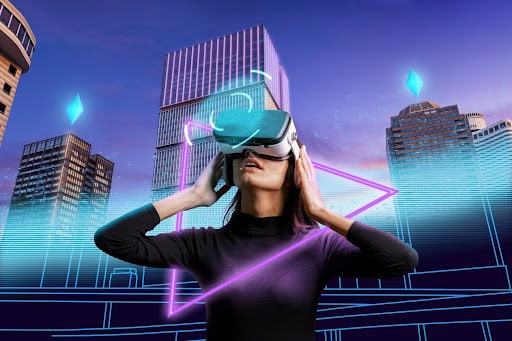Landlord Go moves beyond real estate simulators with NFTs and metaverse
Reality Metaverse recently released a collection of 2000 NFTs linked to properties and buildings in Landlord Go: Trade Real Estate, enabling holders to receive 30% of revenue from the game.

UK-based Reality Games made a name for itself in the mobile gaming industry through the enduring success of Landlord Go. Now, the company has launched Reality Metaverse, a subsidiary hoping to become something else: the bridge between ‘real life’ and ‘metaverse,’ where web2 and web3 players co-exist.
The plan has been in the works since at least 2021, but its real-life linked NFTs have taken a giant leap forward in recent months. The game Landlord Go: Trade Real Estate acts as a foundation for the ecosystem, taking the concept of Monopoly as well as Pokemon Go to the next level, enabling players to buy, sell and rent out digital versions of real-life buildings, cities and famous landmarks set in their actual locations.
Since its launch, Landlord Go has received over 7 million players globally, and the franchise has already generated over 30 million downloads. The game is a fully-playable game.
The game allows players to buy, sell or rent real-life properties worldwide, just digitally. So when another player visits a pub in real life that is owned by a user in Landlord Go, they pay the user rent in-game. Recent reports suggest more than 800,000 monthly active users as of January 2024.
The property’s value in-game increases as it gets more real-life visitors. The GPS-powered app, available on iOS and Android, produces a list of more than a billion real-life properties worldwide using big data technology. However, players need to be physically present at locations to buy properties in the said locations.
The game receives more than 10,000 daily active users. Landlord Go uses actual buildings, real people, and real-life prices, which correspond to the game.
In addition to its real-life geo-based AR property simulator, Reality Metaverse also introduced the layer of blockchain and NFTs, creating 1:1 NFTs of over 2,000 buildings, cities and famous landmarks in-game. Reality Metaverse taps into data from the Landlord Go game, connecting towns and buildings within the game with said NFTs. These NFTs directly connect with the mobile game Landlord Go, allowing owners to earn royalties from each in-app purchase associated with the corresponding NFT.
Each NFT is also fractionalised, consisting of shares, which allows everyone, regardless of their budget, to partly own a piece of the real estate via an NFT, hence receiving royalties in proportion to their share.
“The NFT industry is still immature, and we understand a monument like the Eiffel Tower or London Bridge may skyrocket in price, so we’ve made it possible for people to own these monuments by paying for what they would for a cup of coffee,” says Maciej Burno, Chief Business Development Officer at Reality Metaverse.
Reality Metaverse operates with its native RMV cryptocurrency token, which is used to receive NFT royalties, act as metaverse ecosystem currency, and be utilised for further game development or initiatives such as community grants and more.
30% of revenue generated by the properties or areas in Landlord Go is transferred to the Polygon blockchain. The Reality Metaverse team then buys back that revenue through its native RMV tokens, using those funds to distribute to NFT holders. This allows NFT owners to earn royalties from web2 players.
Recent reports suggest high in-app purchases, with the highest individual spenders over $400,000 US, which in some cases to be an indication of expenditures even higher than their real-life property portfolios.
The goal is for Reality Metaverse to make games like Landlord Go more web3 friendly and create long-term value with NFTs, utilising blockchain technology to build ecosystems and bring players together from both worlds, which is a challenging task for many.
The company is launching several games such as a Weather Challenge, Food Truck Tycoon, Donut Trumpet, Speculate and more, all of which will allow players to wager or bet on things like weather or Monopoly their way into forecasting the best real-life food delivery locations globally to earn royalties and rewards.
Reality Metaverse predicts expandable utilities to its NFTs, the addition of new games, official IP licences, and partnerships with major consumer brands will be the way forward to bridging the gaps between web2 and web3 players through its games.
Disclaimer: The Industry Talk section features insights by crypto industry players and is not a part of the editorial content of Cryptonews.com.








